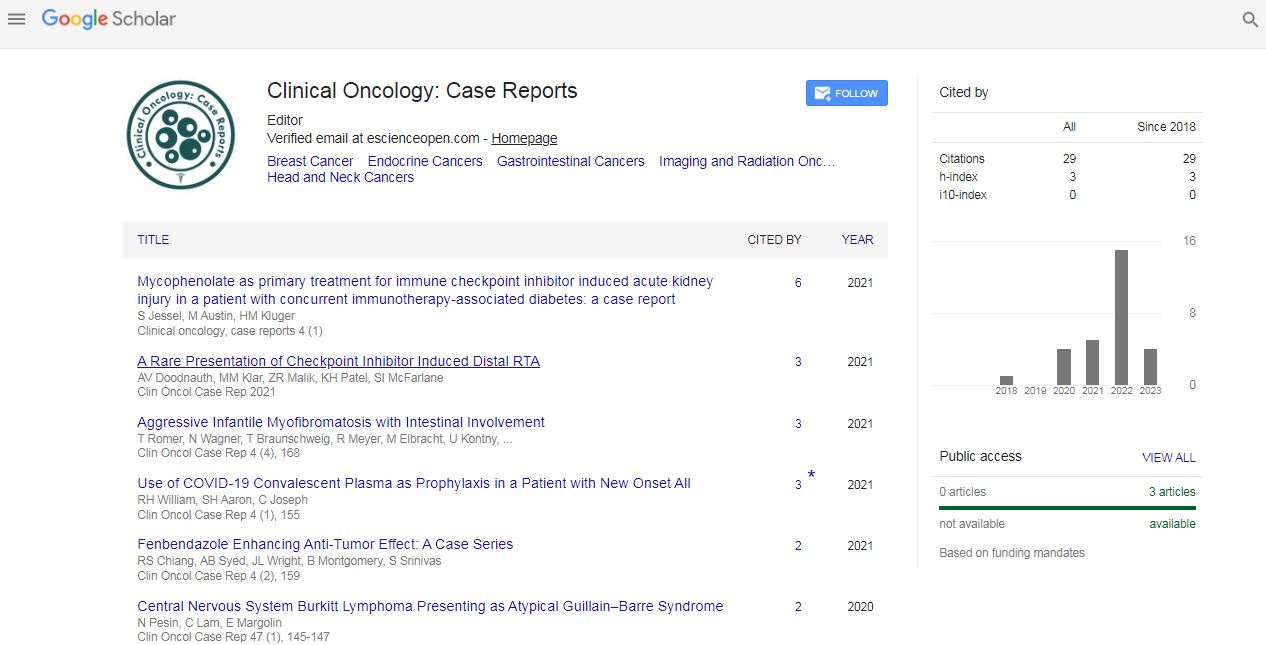Case Report, Clin Oncol Case Rep Vol: 4 Issue: 4
Pegylated Liposomal Doxorubicin Induced Nephrotic Syndrome and Renal Thrombotic Microangiopathy: A Case Report and Review
Abstract
Anthracyclines such as Pegylated Liposomal Doxorubicin (PLD) are well known for causing cardiotoxicity. Other adverse effects such as nephrotic syndrome and Drug-Induced Thrombotic Microangiopathy (DITMA) have been described in the literature but are not as well identified in clinical practice. A 76-year-old woman with metastatic breast cancer receiving PLD presented with generalized weakness and anasarca. She was found to have acute renal failure and nephrotic syndrome. After extensive workup, she was diagnosed with thrombotic microangiopathy on renal biopsy. The diagnosis of PLD-induced DITMA was made after a thorough work up ruled out other etiologies. Literature since the 1950s shows an association between anthracyclines and nephrotoxicity, specifically the development of nephrotic syndrome. However, large scale comprehensive review articles for DITMA did not include anthracyclines until May 2020. Moreover, there is a lack of published data on PLD adverse effects as well as concurrent renally dosed adjustments in commonly accessed resources for physicians including: UpToDate, LexiComp, NCCN, NCI and SEERS, making it difficult to diagnose. PLD-associated nephrotoxicity and DITMA needs to be addressed in clinical practice. In patients who are being treated with anthracyclines, we suggest close monitoring of renal function for early identification and intervention. We are proposing a large scale multi-institutional analysis to further validate these suggestions.
 Spanish
Spanish  Chinese
Chinese  Russian
Russian  German
German  French
French  Japanese
Japanese  Portuguese
Portuguese  Hindi
Hindi 